![]() Within the practices and professions within medicine, a mixture of medical knowledge, judgement, and proper data is undoubtedly important. With that said, a mountain of medical knowledge or judgment is almost useless without an ability to gather information about a patient, gather information about a health condition, and effectively deliver a treatment. Technology is — to an ever-increasing degree — at the heart of all three of these abilities.
Within the practices and professions within medicine, a mixture of medical knowledge, judgement, and proper data is undoubtedly important. With that said, a mountain of medical knowledge or judgment is almost useless without an ability to gather information about a patient, gather information about a health condition, and effectively deliver a treatment. Technology is — to an ever-increasing degree — at the heart of all three of these abilities.
Whether a state of the art lab or a field hospital at a disaster site, medical technology ranges from basic tools like a stethoscope, or a blood pressure detector, to MRI machines that can image your brain. Behind the scenes, skilled laboratory professionals provide cutting-edge diagnostics on-demand to help support medical objectives.
Additionally, the world of medical records has become one of our greatest assets in providing quality health care. Digitizing patient records has allowed specialists from diverse fields to collaborate and bring about better health outcomes. Health studies of unseen proportion in previous times can be compiled rapidly. And health care practitioners can keep tabs on long-term health trends within patients to support longevity.
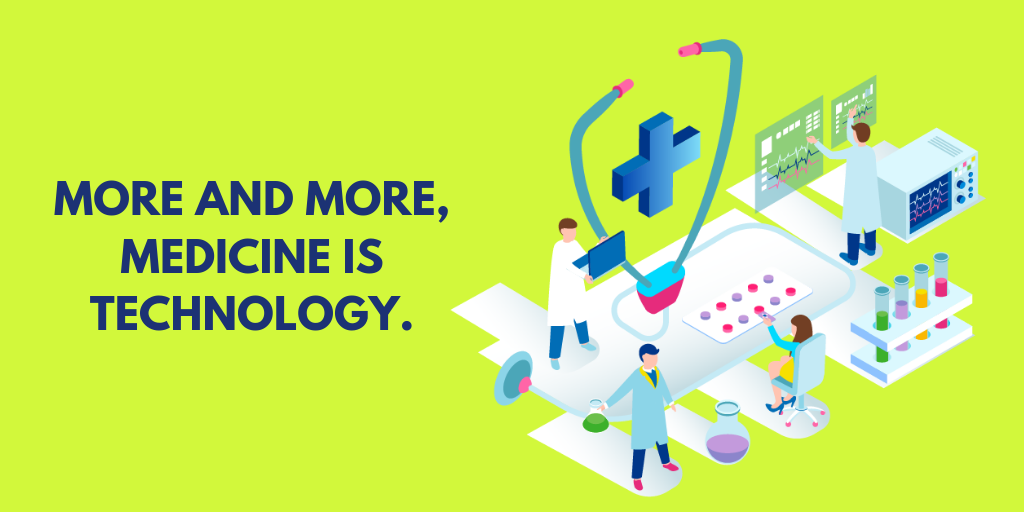
The new world of health care is fascinating and for people with many conditions, exciting. But it comes coupled with a need. A drastic shortage of medical technology professionals threatens to undermine quality health outcomes, and yet provides a great incentive for individuals interested in the field. With great opportunities for advancement, and relatively high earnings for the level of degrees required, medical technology degrees have never been a better choice.
In this guide we’ll cover the below topics on medical technology degrees as well as careers you can enter once you’ve obtained your degree.
Jump To
- What Medical Technology Degrees Are Available?
- Can I Pursue a Medical Technology Degree Online?
- What Can I Do With a Degree in Medical Technology?
Don’t see what you’re interested in? Be sure to check out DegreeQuery’s additional coverage of medical technology related topics below:
- Top 50 Online Medical Degrees
- What degree should I get for medical school?
- What degree do I need to become a Medical Examiner?
- What degree do I need to be a Biomedical Engineer?
- What Can I Do With a Health Care Degree?
- What Can I Do With a Degree in Medicine?
- What Can I Do With a Degree in Nursing?
- Top 10 Highest Paying Science Careers
- Top 25 Medical Schools
- What Classes Will I Have to Take for a Degree in Biomedical Engineering?
- What is a Bachelor’s Degree in Bioinformatics?
- What is a Master’s Degree in Bioinformatics?
- What is the Benefit of a Degree in Healthcare Informatics vs. Healthcare Administration?
- What is the Benefit of a Degree in Nursing Informatics vs. Nursing Administration?
- What Is the Benefit of a Nursing Degree Vs a Sonography Degree?
- What Is the Difference Between a Chemical Engineering Degree and a Biomedical Engineering Degree?
- What Is the Fastest School for a Degree in Engineering Technology?
- Which Degrees Can Prepare You for a Career in Telehealth or Telemedicine?
What Fields Are Included in Medical Technology?
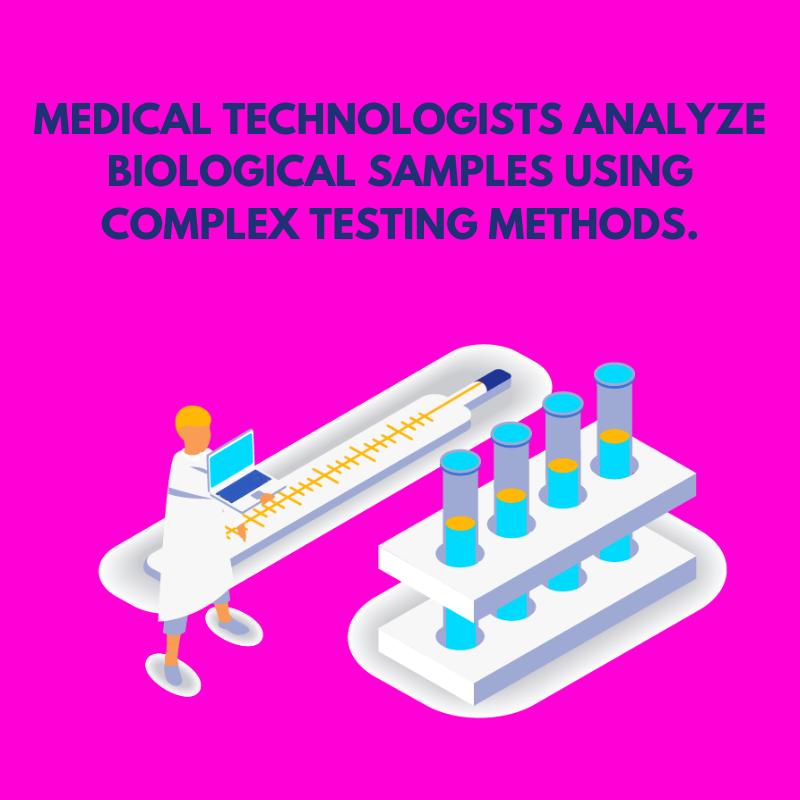
As you likely know, technology plays a huge role in many aspects of health care. And due to the complex and particularly unique use cases for many technologies in health care settings, individuals who specialize in a certain type of healthcare technology are needed in a major way.
While you may begin your study with a more general degree, you can also specialize early in one of the following disciplines. The major fields of medical technology degrees and jobs are listed below:
- Medical Records Technologists
- Information Technologists in Medical Settings
- Laboratory Support Technologists
- Radiologic Technologists
- Phlebotomists
- Surgical Technicians
- MRI Technicians
- Dental Lab Technicians
- And many more
We’ll go into what these job positions entail in our what can I do with a degree in medical technology section. But for now we’ll cover the main degree routes to enter into the fields listed above, as well as the minimum degree level.
Degree and Degree Level Required for Entry to Medical Technology Fields
- Medical Records: Health Information Management or Technology, Associates Degree
- Information Technology in HealthCare: Information Technology, Associates Degree
- Lab Support: Clinical Lab Science or Allied Health Science, Associates Degree
- Radiologic Tech: Radiological Science, Associates or Bachelor’s Degree
- Phlebotomist: Phlebotomy Science, Certificate Program
- Surgical Tech: Surgical Technology, Associates Degree
- MRI Tech: MRI Technology, Certificate or Associate’s Degree
- Dental Lab Tech: Dental Technology, Associates Degree
What Medical Technology Degrees Are Available?
As you can see in the above section, there are a wide range of degree types available to entering into medical technology fields. Additionally, a range of vocational or certificate programs can prepare you for careers in topics such as phlebotomy or as an MRI technician. These programs can be completed even more quickly than associates degrees.

Due to the range of degrees we’ll be considering, let’s work through a few of the basics by degree level. Then we can briefly look at the unique subject matter covered in each particular degree.
Vocational and Certificate programs typically last between 6 weeks up to one year. These courses of study require very few general education requirements. As such students may complete their program much more quickly than an associates degree. Additionally, all coursework is generally focused on career-centered knowledge.
These are no degree programs, though they are often pursued at community colleges. In many fields where a vocational or certificate program is the main entry requirement, students should look for systemically accredited programs. An example of this can be seen in MRI tech programs that are accredited by the American Registry of Magnetic Resonance Imaging Technologists.
After many certificate or vocational programs, students must sit for some form of licensure exam from a state or national governing body. For this reason, it’s important to thoroughly study all materials throughout the program and keep them in your memory (or brush up some on specifics) for the exam.
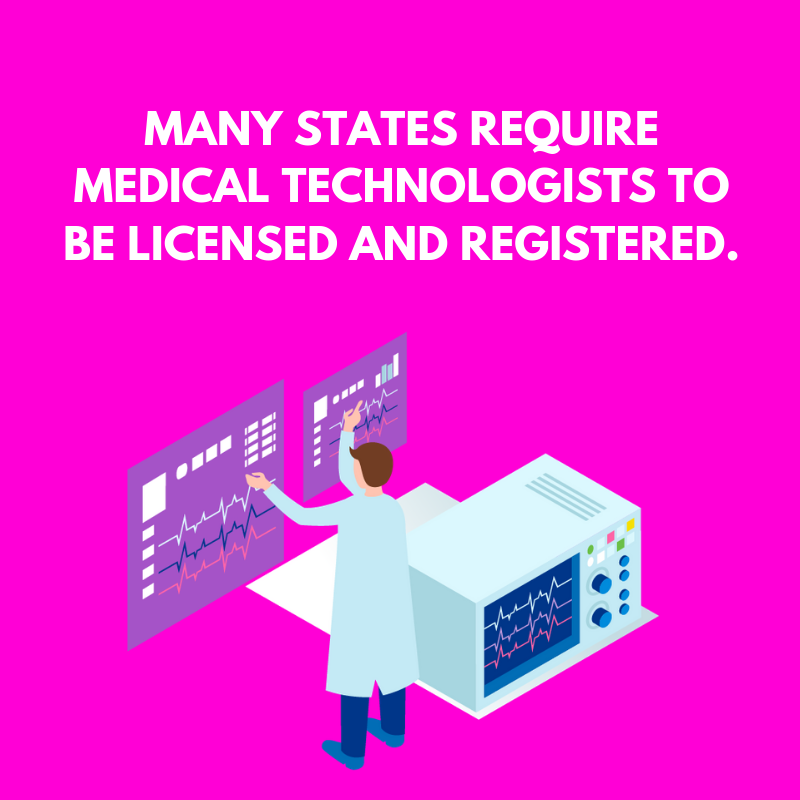
Associates degree programs typically take between 1.5 and 2.5 years. These 60 credit hour programs grant successful participants an associate of art, science, applied science, or technology degree. Though there are slightly different focus areas for each of these degree types, programs typically follow a similar format.
In associate’s degrees, unlike in vocational or certificate training, students are required to complete general educational requirements as well as major courses. General educational requirements may or may not be directly related to your major course of study. Their aim is to ensure that you have acquired a baseline skill set worthy of the degree being pursued. In most cases, general education requirements include course work in the following:
- Literature
- Writing
- Basic Computer Skills
- Data Literacy
- Social Science
- Natural Science
- Mathematics
Upon completion of a sizable portion of general education requirements, students in associates degrees begin to take their major coursework. In most programs, students may be admitted to the college or university and begin their general education courses before even choosing a major. If you think you may be interested in an associates degree in medical technology, you can go ahead and begin on general education courses when you see fit.
Associates degrees are known as some of the best “bang for your buck” degrees. This is because they are the entry requirement for many jobs, offer vocational-specific training, and have low or no tuition costs in some districts. Check to see what community costs in your state or district are, and you may find that you are in a free community college location. Once you’ve completed an associates degree, it’s also transferable to a four-year institution as long as you attended a regionally accredited institution.
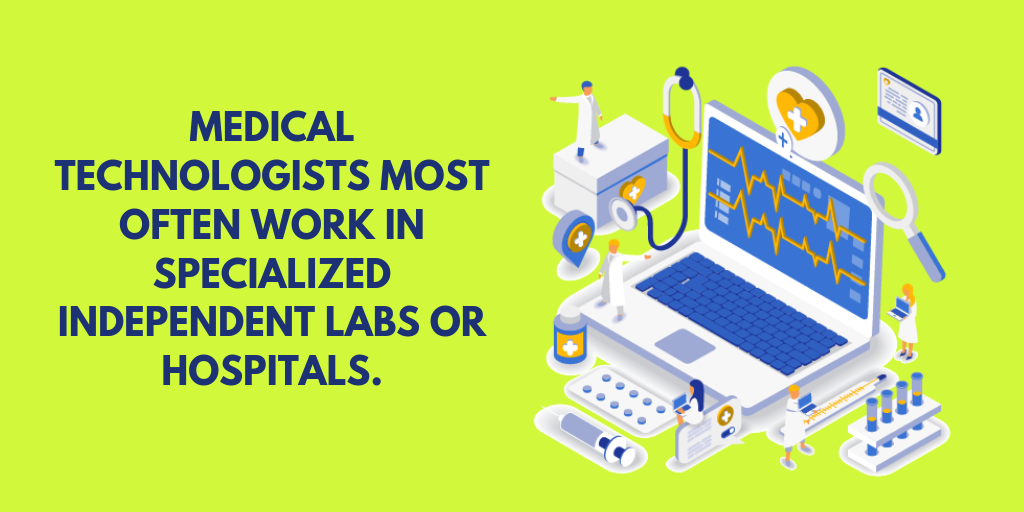
For a handful of the degrees listed in the previous section, bachelor’s degrees are the preferred entry point. Typically speaking, general education requirements within bachelor’s degrees are very similar to those in associates degrees.
Overall, bachelor’s degrees require 120 credit hours for graduation, and typically offer around three times the number of major courses offered in an associates degree.
One thing you should be aware of is that in the previous section we listed the requirements to enter into a field within medical technology. In most of the fields above there’s definitely room for advancement, particularly if you gain a more advanced degree. Within medical technology settings, graduate degrees including MBAs focused on health care informatics and health care administration degrees can be great choices for further advancement.
Now that we’ve covered elements that many medical technology degrees share, let’s take a look at what makes each degree unique. Below we’ll outline some of the key courses within each medical technology degree we’re covering today.
- Associates in Health Information Management: med tech, anatomy and physiology, health terms, computer applications, legal issues in health, CPT coding
- Associates in Information Technology:scripting, economics, business systems, project management, cyber security, networking
- Associates in Clinical Lab Science: microbiology, hematology, immunohematology, clinical chemistry, parasitology, mycology, others
- Associates in Radiologic Science: anatomy and physiology, medical terms, physics, radiography, image production, clinical courses, radiobiology, others
- Certificate in Phlebotomy Science: CPR, first aid, anatomy and physiology, phlebotomy
- Associates in Surgical Technology: medical law and ethics, pharmacology, medical terms, surgical techniques, pathophysiology
- Associates in MRI Technology: anatomy and physiology, radiological technology, imaging, pharmacology, physics
- Associates in Dental Technology: oral anatomy, dental infections, dental technology, prosthodontics, imaging, surface restoration, creation of dental ceramics
Can I Pursue a Medical Technology Degree Online?

By and large, medical technology programs are applied technical certificate or degree programs. This means that a good deal of the coursework in these programs deals with teaching you how to operate specific pieces of technology. And a great deal of this learning is hands-on or in lab settings.
This means that a good number of medical technology programs are primarily offered in-person. The good news, however, is two-fold. First, because there is demand for medical technologists nearly everywhere, in-person medical technology degrees exist in nearly every corner of the nation. Secondly, for associates and bachelor’s degree programs, only a fraction of your courses will be hands-on. For theoretical or general education courses, many colleges and universities offer options to take online courses.
WIth all that said, many medical technology degrees are offered in a hybrid format. This means that you’ll take some coursework online and some in-person. Additionally, degree programs in fields such as allied health, information technology, and health informatics are often offered online.
What Can I Do With a Degree in Medical Technology?
Getting a degree is great. But what we all really want to know is what you can do with it. Many medical technology degrees and certifications are vocational or job-centered. This means that they prepare you for a specific job. While there are a few outlier degrees, many of the degrees we’ve talked about at least start you out in a specific position.
Below we’ll work through some of the most common positions medical technology graduates move into.

Medical lab technicians are some of the most well known medical technology positions. These technicians primarily work in government or private labs that are often within designated laboratory complexes or part of hospitals. These technicians are skilled at performing a wide variety of tests, primarily on bodily fluids. Whenever you get your throat swabbed or blood taken to see if you have an infection, these samples are more often than not sent to a medical lab technician.
There are over 300,000 medical lab technicians in the United States alone. And they’re expected to see employment growth at a faster rate than average. Earnings for medical lab techs are good, particularly for a role that just requires an associates degree to get started. The average salary for lab technicians is presently $52,000 a year.
Phlebotomists work in blood donation centers, hospitals, doctors offices, and other settings. They’re primary task is to help draw blood or administer shots to patients. This may include explaining the procedure that is about to take place, and helping patients who have adverse reactions to this sort of procedure.
There are presently over 120,000 phlebotomists in America. And the number of job openings are expected to rise faster than average for other careers. Earnings are quite strong for phlebotomy considering the main requirement for entry into the field is a non-degree certificate often taken at a community college. The average salary for these positions is presently $34,000.
MRI technicians also known as radiological technicians, work in doctor’s offices and hospitals. If you’ve ever had an X-Ray or MRI performed, chances are it’s been done by a MRI technician. These professionals hold an understanding of basic anatomy and physiology as well as the advanced equipment used to image body parts.
There are over 240,000 MRI technicians in the United States. And job openings are set to rise faster than the average for all other jobs. Earnings are very strong for a job that requires an associates degree, with average earnings of $61,240.
Medical records technologists generally specialize in one or several of the main health care record systems. These important information systems allow medical record technicians (or technologists) to save and manage medical records. Due to the massive volume of record keeping, as well as the sensitive nature of medical records, medical records technologists are important assets to whatever health care organization they are a part of.
Presently there are over 200,000 medical records technologists in the United States. The entry degree for this position is an associate’s degree. And average earnings for this position are presently $40,350.
Dental technicians, not to be confused with dental hygienists, help to measure, construct, and fit dental devices including braces, prosthetic implants, and dentures. These technicians are skilled with both knowledge of oral anatomy and dental technology, but must also be good at working directly with patients. Demand is strong for these positions that typically require an associates degree for entry. Average earnings for dental technician positions is presently $36,690.
Information technology professionals are one of the most “open ended” positions we’re looking at today. While there are information technology professionals at every level within medical organizations, they also work in a wide range of other fields. This makes associates and bachelor’s degrees within the field particularly versatile.
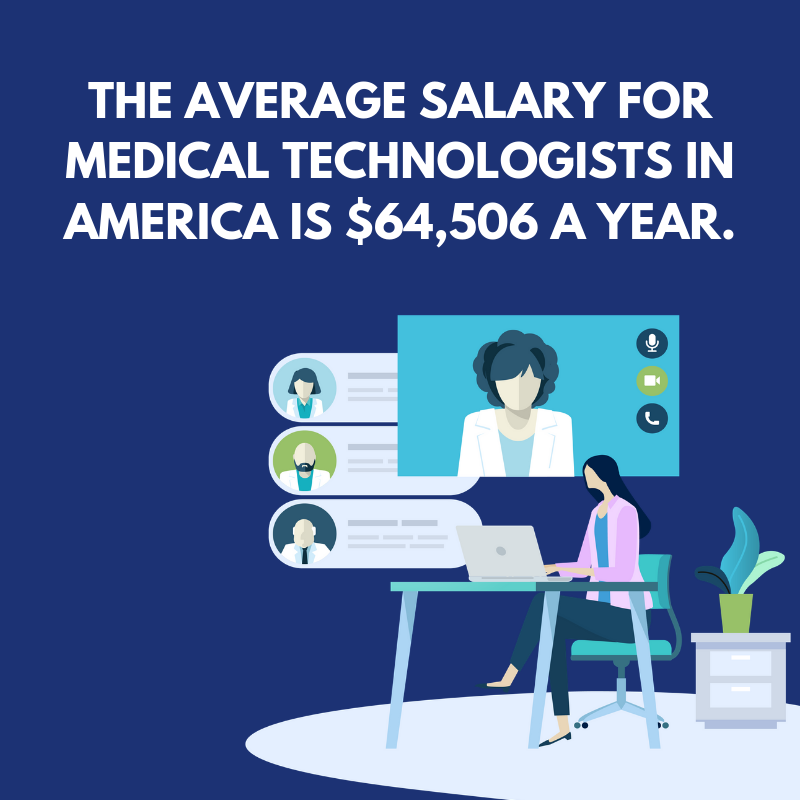
Typical IT professionals within a larger health care organization may focus on one aspect of technology, say, networking technology within a hospital. Within smaller practices, a single information technology professional may manage all IT concerns for the organization.
Unlike some of the other degrees we’ve covered, that prepare you for a single position, information technology positions within larger health care organizations can lead all the way up to the executive level. This makes IT degrees one of the best ways to move “up the ladder” from a medical technology perspective.
While earnings vary greatly depending on career level and level of responsibility, IT professionals in many locations can expect to make over $60,000 a year with an associates degree and some certifications.
Don’t see what you’re interested in? Be sure to check out DegreeQuery’s additional coverage of medical technology related topics below:
- Top 50 Online Medical Degrees
- What degree should I get for medical school?
- What degree do I need to become a Medical Examiner?
- What degree do I need to be a Biomedical Engineer?
- What Can I Do With a Health Care Degree?
- What Can I Do With a Degree in Medicine?
- What Can I Do With a Degree in Nursing?
- Top 10 Highest Paying Science Careers
- Top 25 Medical Schools
- What Classes Will I Have to Take for a Degree in Biomedical Engineering?
- What Degree do I need in Radiologic Technology?
- What is a Bachelor’s Degree in Bioinformatics?
- What is a Master’s Degree in Bioinformatics?
- What is the Benefit of a Degree in Nursing Informatics vs. Nursing Administration?
- What Is the Benefit of a Nursing Degree Vs a Sonography Degree?
- What Is the Difference Between a Chemical Engineering Degree and a Biomedical Engineering Degree?
- What Is the Fastest School for a Degree in Engineering Technology?
- Which Degrees Can Prepare You for a Career in Telehealth or Telemedicine?
- Exciting Jobs: The Top 15 Jobs for Adrenaline Seekers
